Unlock radiant, healthy skin from the inside out! At FOODS.EDU.VN, we believe that the best food for skin is a balanced diet rich in antioxidants, vitamins, and healthy fats. We will explore the top foods to nourish your skin and address common skin concerns, revealing how your plate can be your best beauty secret.
1. Embrace the Power of Fruits and Vegetables
Fruits and vegetables are packed with antioxidants, vital nutrients that combat free radicals, those pesky molecules that damage skin cells. Free radicals are triggered by environmental factors like smoking, pollution, and sun exposure.
Aim for a vibrant rainbow of colors in your daily servings. Beta-carotene, abundant in orange produce like carrots, sweet potatoes, and pumpkins, along with lutein, found in kale, papaya, and spinach, are essential for normal skin cell development and a healthy skin tone. According to a study published in the Journal of Clinical Medicine, carotenoids like beta-carotene protect the skin from UV damage and improve skin hydration.
Explore exciting ways to incorporate these into your diet:
- Breakfast: Try a Raspberry Kefir Overnight Oats for a burst of antioxidants.
- Snack: Munch on carrot sticks with hummus or a handful of berries.
- Lunch/Dinner: Toss a colorful salad with spinach, bell peppers, and a variety of other vegetables.
2. Vitamin C: Your Skin’s Best Friend
Vitamin C is a superstar nutrient for skin health. It supports the immune system, promotes radiant skin, and aids in the healing of blemishes.
Excellent sources of vitamin C include blackcurrants, blueberries, broccoli, guava, kiwi fruits, oranges, papaya, strawberries, and sweet potatoes. A study in the American Journal of Clinical Nutrition highlights vitamin C’s role in collagen synthesis and its antioxidant properties, crucial for maintaining skin elasticity and preventing damage.
Vitamin C is also essential for collagen production, the protein that provides structure and support to the skin. It also strengthens blood capillaries, ensuring your skin receives the nutrients it needs.
Elevate your vitamin C intake:
- Breakfast: Start your day with a glass of freshly squeezed orange juice.
- Snack: Enjoy a handful of strawberries or a kiwi fruit.
- Lunch/Dinner: Add bell peppers or broccoli to your meals.
3. The Power of Vitamin E
Vitamin E is a potent antioxidant that safeguards your skin from oxidative (cell) damage and photo-aging.
Foods rich in vitamin E include almonds, avocados, hazelnuts, pine nuts, and sunflower and pumpkin seed oil. According to the Dermatology Times, vitamin E protects cell membranes from free radical damage, reducing the appearance of fine lines and wrinkles.
Make vitamin E a part of your daily diet:
- Breakfast: Sprinkle almonds on your cereal or oatmeal.
- Snack: Grab a handful of hazelnuts or enjoy an avocado toast.
- Salad Dressing: Use sunflower or pumpkin seed oil for a nutritious and flavorful addition.
4. Selenium: The Skin Protector
Selenium is a powerful antioxidant that works synergistically with vitamins C and E.
Research suggests a selenium-rich diet can help protect against skin cancer, sun damage, and age spots. Brazil nuts are an excellent source – just two or three nuts provide your recommended daily amount. Combine them with other vitamin E-rich seeds as a snack or salad topping. Other good sources include fish, shellfish, eggs, wheatgerm, tomatoes, and broccoli. A study in the journal Nutrients found that selenium supplementation improved skin elasticity and reduced the severity of some skin conditions.
Boost your selenium intake effortlessly:
- Snack: Enjoy a few Brazil nuts with a mix of other seeds.
- Dinner: Include fish or shellfish in your meals a few times a week.
- Salad: Add wheatgerm to your salads for a nutritional boost.
5. Zinc: The Supple Skin Mineral
Zinc supports the normal function of oil-producing glands in the skin, keeping it supple. It also plays a role in the healing process and helps repair skin damage.
Zinc-rich foods include fish, lean red meat, wholegrains, poultry, nuts, seeds, and shellfish. According to a study in the Journal of the American Academy of Dermatology, zinc has anti-inflammatory properties and can be beneficial in treating acne and other skin conditions.
Incorporate zinc into your diet:
- Breakfast: Start with a bowl of wholegrain cereal.
- Snack: Enjoy a handful of nuts and seeds.
- Lunch/Dinner: Include lean red meat, poultry, or fish in your meals.
6. The Importance of Healthy Fats
Healthy fats, especially monounsaturated and polyunsaturated varieties, act as natural moisturizers for your skin, improving elasticity and keeping it supple from the inside out.
These fats are found in avocados, oily fish, nuts, and seeds, and often come with a healthy dose of vitamin E. Focus especially on omega-3 fatty acids, found in oily fish like salmon, trout, and sardines, as well as plant sources including flaxseed, chia seeds, walnuts, and rapeseed oil. These fatty acids are anti-inflammatory and can help alleviate skin conditions like eczema and psoriasis. The Journal of Lipid Research highlights the role of omega-3 fatty acids in maintaining skin barrier function and reducing inflammation.
Ideas to include healthy fats in your diet:
- Breakfast: Add chia seeds or flaxseed to your smoothies or yogurt.
- Snack: Enjoy a handful of walnuts or an avocado toast.
- Dinner: Include oily fish like salmon or trout in your meals.
7. Phyto-estrogens: Balancing Hormones for Skin Health
Phyto-estrogens are natural compounds found in plants that have a similar structure to the female sex hormone estrogen. They are believed to help keep our natural hormones in balance, which is crucial for skin health, especially in supporting skin structure and minimizing skin damage.
Different types of plant estrogens are found in soya (isoflavones) such as tofu and tempeh, while others are found in the fiber of wholegrains, fruit, vegetables, and flaxseed (lignans). A study in the Journal of the American College of Nutrition suggests that phytoestrogens may improve skin collagen content and reduce wrinkle depth.
Simple ways to add phyto-estrogens to your diet:
- Lunch/Dinner: Include tofu or tempeh in your stir-fries or salads.
- Breakfast: Add flaxseed to your oatmeal or smoothies.
- Snack: Enjoy a handful of soya nuts.
8. Hydration: The Key to Flexible Skin
Skin needs moisture to stay flexible. Even mild dehydration can leave your skin looking dry, tired, and slightly grey. Experts recommend drinking six to eight glasses of water a day. All fluids count, but water is best.
Keep a large bottle of water on your desk as a reminder to drink. Caffeine-free herbal teas are also great. Some fruits and vegetables, such as watermelon, courgette, and cucumber, contribute fluids, along with beneficial minerals. A study in the International Journal of Cosmetic Science found that increased water intake improved skin hydration and elasticity.
Stay hydrated effortlessly:
- Carry a water bottle: Keep it with you and refill it throughout the day.
- Add flavor: Infuse your water with fruits like lemon, cucumber, or berries.
- Choose hydrating foods: Include watermelon, cucumber, and other hydrating fruits and vegetables in your diet.
9. Low-GI Carbs: Stabilizing Energy for Healthy Skin
The Glycemic Index (GI) ranks carbohydrate-based foods based on how slowly or quickly they are broken down into glucose in the body.
Opt for plenty of beans, pulses, porridge, and other low-GI, slow-releasing carbohydrates. These release energy gradually, providing a steady supply and keeping you feeling satisfied, reducing the likelihood of snacking. A diet rich in low-GI foods helps prevent spikes in insulin, which can damage collagen and accelerate wrinkles. A study in the American Journal of Clinical Dermatology linked high-GI diets to increased acne severity.
Choose low-GI carbs:
- Breakfast: Opt for porridge or oatmeal instead of sugary cereals.
- Lunch/Dinner: Include beans and pulses in your salads and meals.
- Snacks: Choose fruits over processed snacks.
10. Avoid Crash Dieting
Repeatedly losing and regaining weight can take a toll on your skin, leading to sagging, wrinkles, and stretch marks.
Crash diets are often deficient in essential vitamins and minerals, which will reflect on your skin over time. A balanced, sustainable approach to weight management is key for maintaining healthy skin. The British Journal of Dermatology notes that rapid weight loss can reduce skin elasticity and contribute to premature aging.
Avoid crash dieting:
- Focus on a balanced diet: Include all the essential nutrients in your diet.
- Make sustainable changes: Adopt healthy habits that you can maintain long-term.
- Consult a professional: Seek advice from a registered dietitian or nutritionist.
Eat to Beat Common Skin Problems
A targeted diet can help manage and alleviate various skin conditions.
Does Diet Affect Acne?
Acne is often linked to changes in hormone levels, particularly during puberty and peri-menopause, which can stimulate the oil-producing glands and trigger inflammation.
To help minimize acne:
- Reduce saturated and hydrogenated fats found in margarines and processed foods.
- Eliminate junk food and foods high in sugar, such as cakes and biscuits.
- Increase intake of raw vegetables, wholegrains, fresh fruit, and fish.
- Include foods rich in selenium, such as Brazil nuts, cashew nuts, fresh tuna, sunflower seeds, walnuts, and wholemeal bread.
- Consider following a Mediterranean diet, which has been linked to reduced acne severity.
Does Diet Affect Psoriasis?
Psoriasis is characterized by red skin patches with silvery scales, commonly found on the elbows and knees. These patches are caused by rapid growth and turnover of cells in the outer layer of the skin. Sunburn, alcohol, smoking, obesity, and stress are all implicated, but trigger foods may also play a role.
Consider these dietary changes:
- Minimize saturated fat from red and processed meats.
- Focus on healthy fats, including omega-3 fatty acids from oily varieties of fish and cold-pressed nut and seed oils.
- Incorporate anti-inflammatory herbs and spices such as turmeric, ginger, cumin, fennel, rosemary, and garlic.
Does Diet Affect Eczema?
Eczema usually begins as patchy redness, often on the hands, but can appear anywhere on the skin. While there are many triggers, food sensitivity is a common one.
To help alleviate symptoms:
- Include foods rich in omega-3 fatty acids, zinc, and vitamin E.
Note: Always seek professional advice from your GP or a registered dietitian before making significant changes to your diet or commencing an exclusion diet. For persistent skin conditions, consult your GP or consider a referral to a dermatologist.
It’s important to understand how specific dietary choices influence skin health and appearance. Here’s a breakdown in a table format:
| Nutrient | Food Sources | Benefits for Skin |
|---|---|---|
| Vitamin C | Blackcurrants, blueberries, oranges, strawberries, broccoli, kiwi | Boosts collagen production, protects against sun damage, promotes healing |
| Vitamin E | Almonds, avocados, hazelnuts, sunflower seeds, pumpkin seeds | Protects against cell damage, reduces inflammation, maintains skin elasticity |
| Selenium | Brazil nuts, fish, shellfish, eggs, wheatgerm, tomatoes, broccoli | Protects against skin cancer, reduces sun damage, prevents age spots |
| Zinc | Fish, lean red meat, wholegrains, poultry, nuts, seeds, shellfish | Supports oil gland function, aids in healing, repairs skin damage |
| Omega-3 Fatty Acids | Salmon, trout, sardines, flaxseed, chia seeds, walnuts | Reduces inflammation, supports skin barrier function, alleviates eczema and psoriasis |
| Phyto-estrogens | Tofu, tempeh, flaxseed, wholegrains, fruits, vegetables | Balances hormones, supports skin structure, minimizes skin damage |
| Water | Water, herbal teas, watermelon, cucumber, courgette | Maintains skin elasticity, prevents dryness, promotes hydration |
| Low-GI Carbs | Beans, pulses, porridge, oats | Provides steady energy, prevents insulin spikes, supports collagen production |
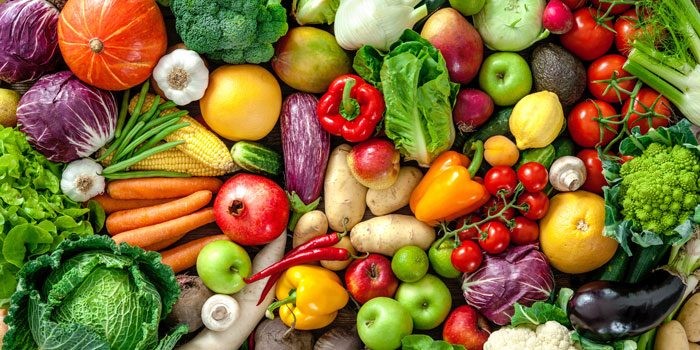
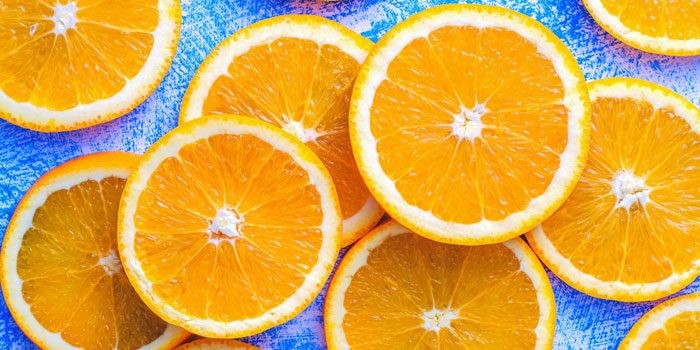
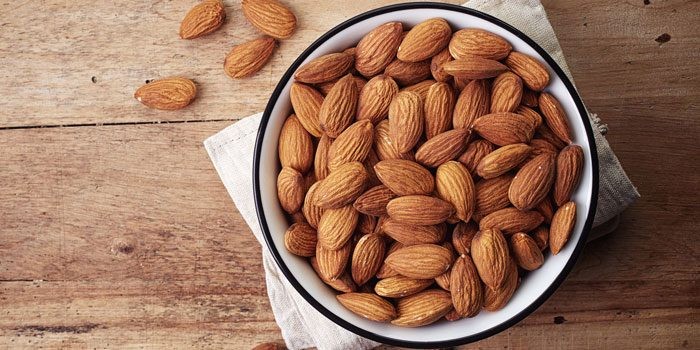
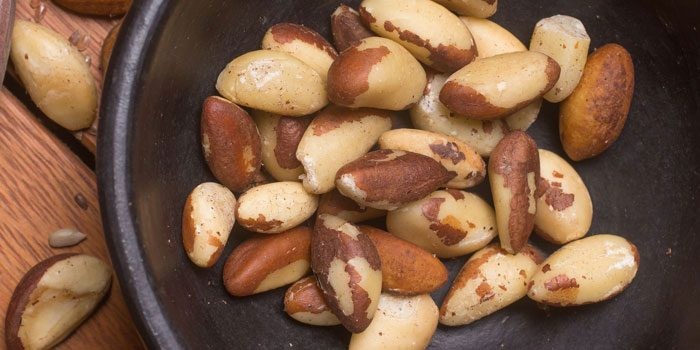
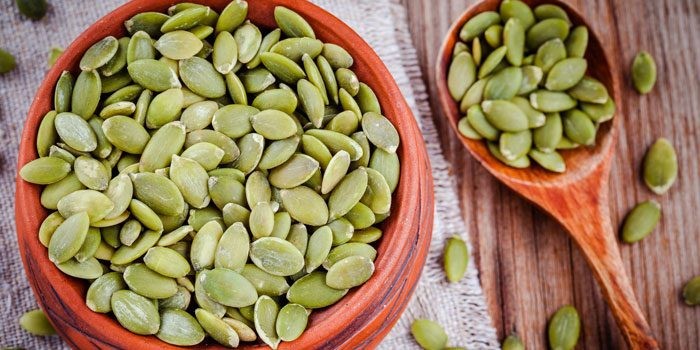
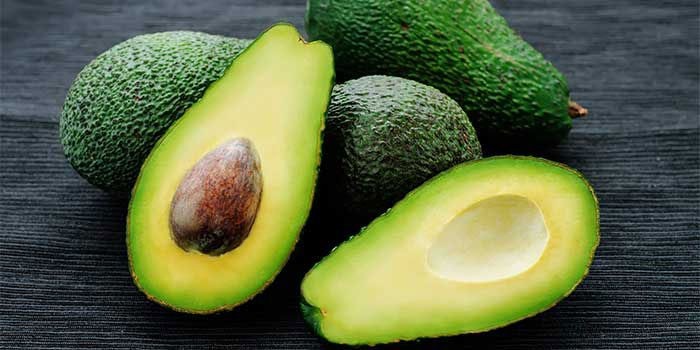
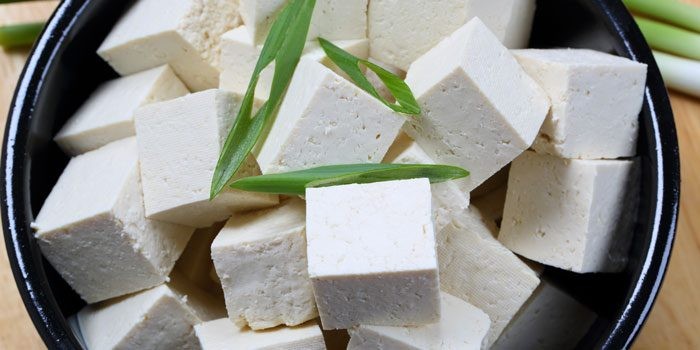
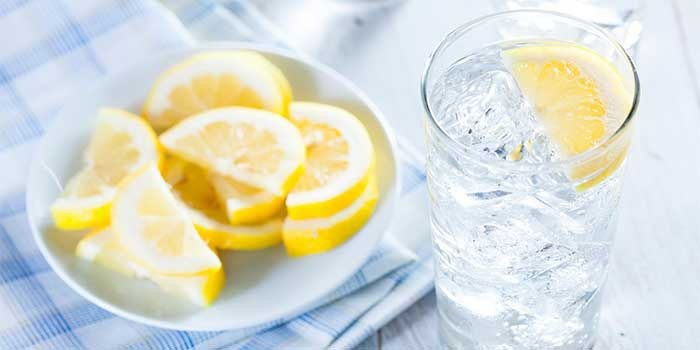
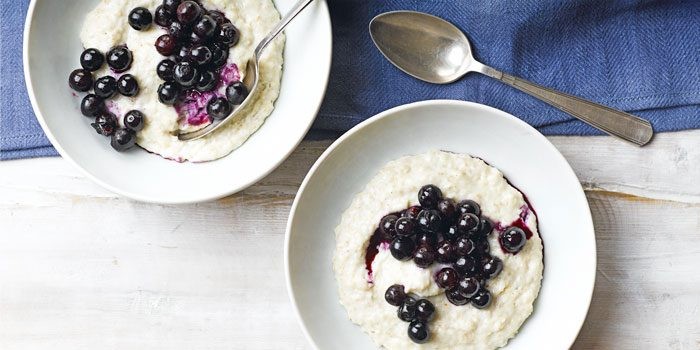
Unlock Your Best Skin with FOODS.EDU.VN
Navigating the world of nutrition and its impact on skin health can be overwhelming. At FOODS.EDU.VN, we’re dedicated to providing you with reliable, easy-to-understand information to help you make the best choices for your skin.
Ready to dive deeper?
Visit FOODS.EDU.VN to discover a treasure trove of articles, recipes, and expert advice on how to nourish your skin from the inside out. Explore topics like:
- Targeted meal plans for specific skin concerns: Whether you’re battling acne, eczema, or simply want to achieve a radiant glow, we have a plan for you.
- In-depth guides on essential nutrients: Learn about the science behind each vitamin and mineral and how they contribute to skin health.
- Delicious and easy-to-follow recipes: Transform your kitchen into a skincare haven with our collection of skin-loving recipes.
Don’t wait any longer to unlock your best skin. Head over to FOODS.EDU.VN today and start your journey to a healthier, more radiant you!
Have questions or want to connect with our community?
- Visit us: 1946 Campus Dr, Hyde Park, NY 12538, United States
- WhatsApp: +1 845-452-9600
- Explore: foods.edu.vn
Frequently Asked Questions (FAQ) About The Best Foods For Skin
Here are some frequently asked questions regarding What Is The Best Food For Skin.
1. What is the best food for glowing skin?
The best foods for glowing skin are those rich in antioxidants, vitamins, and healthy fats. These include fruits, vegetables, oily fish, nuts, and seeds.
2. Can diet really affect my skin?
Yes, diet plays a significant role in skin health. The nutrients you consume can impact skin hydration, elasticity, inflammation, and overall appearance.
3. What foods should I avoid for clear skin?
For clearer skin, it’s best to avoid or minimize processed foods, sugary drinks, high-GI carbohydrates, and excessive saturated fats.
4. Are there specific foods that can help with acne?
Yes, a diet rich in omega-3 fatty acids, selenium, and zinc, while low in saturated fats and sugars, can help reduce acne severity.
5. How much water should I drink for healthy skin?
Aim to drink six to eight glasses of water per day to keep your skin hydrated and flexible.
6. Can supplements help improve skin health?
While a balanced diet is the best approach, certain supplements like vitamin C, vitamin E, and omega-3 fatty acids may provide additional benefits for skin health. Consult with a healthcare professional before starting any new supplements.
7. What are the best sources of omega-3 fatty acids for skin?
Excellent sources of omega-3 fatty acids include salmon, trout, sardines, flaxseed, chia seeds, and walnuts.
8. How do antioxidants benefit the skin?
Antioxidants protect the skin from damage caused by free radicals, which can contribute to premature aging, inflammation, and other skin issues.
9. Can food sensitivities affect my skin?
Yes, food sensitivities can trigger skin conditions like eczema. An exclusion diet, under the guidance of a healthcare professional, may help identify potential trigger foods.
10. How long does it take to see results from dietary changes on my skin?
It can take several weeks to a few months to see noticeable improvements in your skin after making dietary changes. Consistency is key for achieving long-term results.